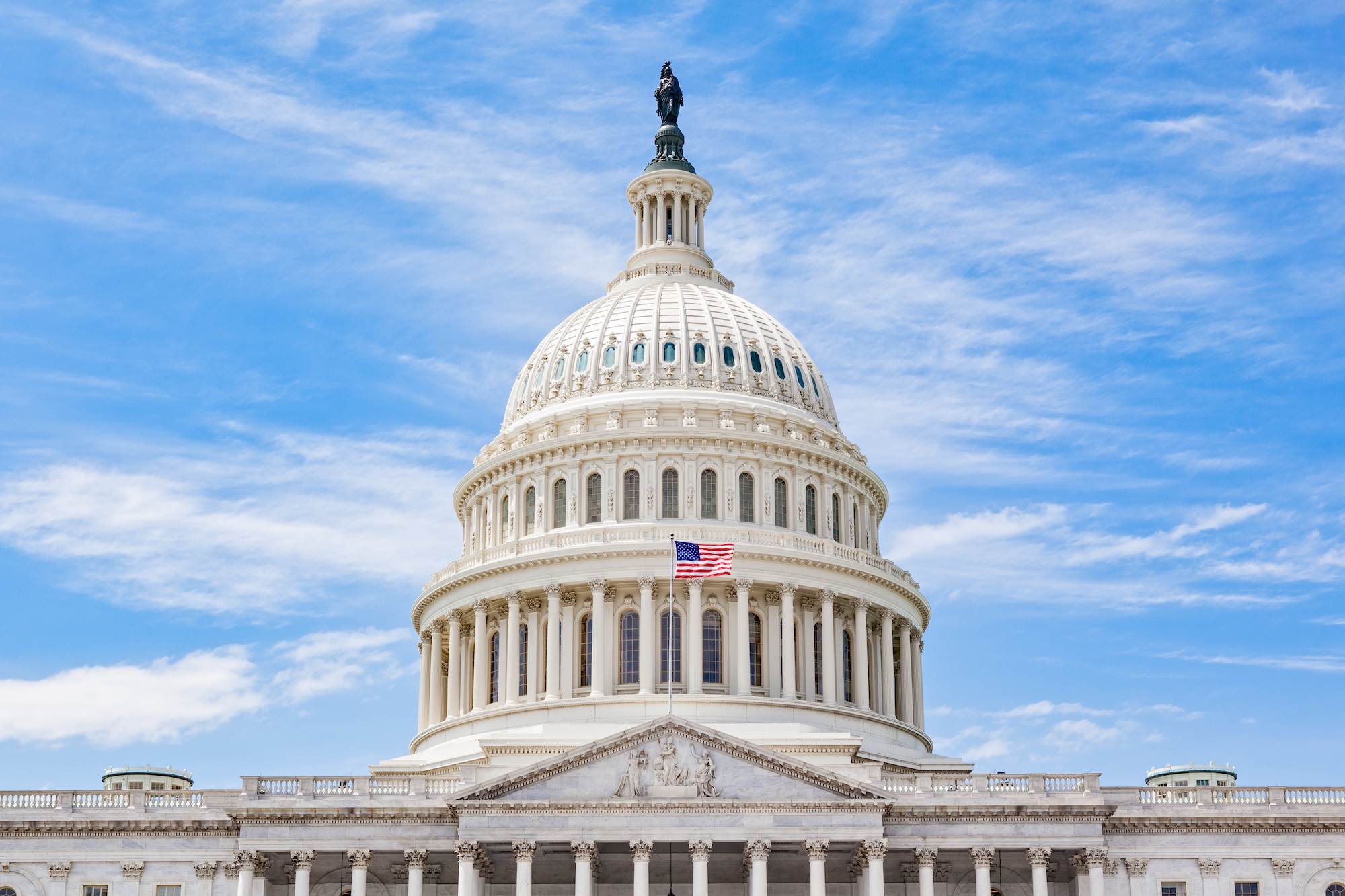

American immigration policy can’t keep ignoring America’s citizens.
RECOMMENDED READING
Somewhat overshadowed in 2020 by COVID-19, immigration policy has returned to its 2016 pride-of-place. No issue defines this election year more, both here and in Europe, especially the problem of illegal mass migration. Border sovereignty—more than concerns about the costs of free movement for goods and capital—remains the definitive issue dividing the few from the many in what is an increasingly global struggle between populist revisionists and a status-quo elite.
That in the United States, with its two-party system, this division has been given a partisan cast redounds only to Donald Trump’s advantage. For, as establishment media and even liberal politicians are forced to admit, doing something drastic about illegal immigration is popular, across party lines. In “our sacred democracy,” that ought to count for something. Indeed, whether the people, as citizens, will be represented by their elected representatives—whether the government is for them and their posterity—is the whole point in question on the subject.
As a CBS news poll recently found, 62% of registered voters would support a national program of deportation for illegal migrants. That rises to 90% of Republicans, but also represents one-third of Democrats. Even New Yorkers—close as they are to Emma Lazarus’s tawdry amendment to the U.S. Constitution enshrined on Liberty Island—are fed up with mass migration: A Sienna poll found a bipartisan majority, 83% (77% of Democrats, 95% of Republicans, and 83% of independents), believe the current flow of migrants is a serious problem.
How did it come to this? What is the rationale in a democratic republic to so blatantly ignore the popular will? Perhaps David Leonhardt, one of the Gray Lady’s most reasonable retainers, can shed some light on elite opinion on this matter. Describing immigration as the “force shaping Western politics,” Leonhardt wrote in his morning newsletter in mid-June that the “migration boom has had big advantages. It has allowed millions of people to escape poverty and violence. It has diversified Western culture. It has brought workers into Europe and the U.S. who have held down the cost of labor-intensive businesses.”
Not meaning too much to sound like Antony condemning Brutus, let me repeat: Leonhardt is a reasonable man. So, taking this at face value, the best argument for mass migration is that it has been good for the immigrants, dissolvent of national culture, and suppressive of native workers’ wages. One sometimes wonders if the thought in New York is that no Americans in the Rust Belt can read. Now I’m being unfair to Leonhardt; he does acknowledge some downsides. “More labor competition can obviously hurt the workers who already live in a country. Governments have strained to provide social services to the arrivals. And the rise in immigration has been so rapid that many citizens feel uncomfortable with the associated societal changes.”
Leonhardt goes on to make the case that, while the West’s governing class has dismissed the concerns of its fellow citizens on these issues—often by condemning objections as racist or simply ignorant of modern economics—the political consequences now may be too great to ignore. But as the Upton Sinclair line puts it, “it is difficult to get a man to understand something, when his salary depends on his not understanding it.” In his recent interview with Ross Douthat, Sen. J.D. Vance described a dinner during the Trump administration in which he was seated next to a major hotel chain CEO. The executive complained that immigration enforcement was driving up wages: “The labor market is super tight. What Trump has done at the border has completely forced me to change the way that I interact with my employees.”
The labor argument for enforcing immigration law is fine as far as it goes; American workers do deserve a greater share of the profits they help produce. But it cedes the framing of what is a political problem—who is this country for?—to economics, glossing over national sovereignty and soliciting counterarguments about GDP and global efficiencies.
The central questions we should be asking are constitutional: Who makes up the people, and how do they constitute a nation? The mass legal immigration regime was sold to the American people on a lie: that it would change very little. The Hart-Celler Immigration and Nationality Act of 1965 was signed by LBJ with the promise that it was “not a revolutionary bill”—back when 85% of Americans were white, 11% black, and 4% Latino. But the mass illegal immigration regime has been imposed illegally, that is, by refusing to enforce basic law or address law breaking, without the consent of the governed.
If taxation without representation merited a war for independence, what is a citizenry to do when they have no voice in who will be their neighbors? America is not an ethno-nationalist, organic state. And so questions of legal process and—not primarily assimilation, since that puts the onus on the immigrant, but rather—acceptance by Americans of new participants in republican polity are even more fundamental.
America has had a number of refoundings since 1776, as our statesmen established new settlements between the few and the many in our mixed regime, the most definitive being the Civil War. Addressing the mass migration crisis can be one more such refounding, more along the lines of President Polk’s completion of the Jacksonian program. It would be, quite literally, a great national effort of self-definition, as citizens reidentified themselves as such, with the rights and duties, the privileges and responsibilities, entailed.
Not only does immigration directly touch these fundamental questions of national identity and sovereignty, but mass immigration is the primary instrument by which America’s governing class broke their most recent stable settlement with the American people. Through the crises of the Great Depression and the Second World War, FDR remade the world in his image. The victory of his national social democracy—which united capital and labor, old stock Americans and Ellis Island arrivals—was so total that the conservative movement soon gave up on its reform and focused their attention, rightly, on the more invasive administrative state of LBJ’s Great Society.
Along with the Civil Rights Act, LBJ’s was an attempted new refounding. But the continuous transformation of the demographics of the country following the Hart-Celler Act and 60 years of illegal migration has guaranteed that no fresh stable equilibrium could be established through the give-and-take of the normal political process. Welfare and social reconciliation programs designed for an older, largely black and white America have been overburdened by unexpected arrivals. And the de facto free movement of people has amplified the disruptions of liberalized trade and finance.
Finally doing something to arrest the flow of illegal migrants into this country would be a small first step to allowing the country to bind up the nation’s wounds. A national program of deportation and remigration would be a giant step toward a new and lasting establishment of our mixed regime. Such an effort need not depend—as opponents will suggest—on state capacity this United States transparently does not have, nor will it make us a police state. With the right incentives in place, mass remigration can be primarily voluntary: significant penalties for those who employ and rent to people actively breaking our laws, substantial taxation of remittances, strict exclusion from government services—all would make it quickly clear to tens of millions that remaining is not worth it.
There would be, of course, compromises. The politics would be excruciating. But in the agony of such a political struggle, in public, between legislature, executive, and judiciary—ambition again made to counteract ambition—the citizens of the American republic might rediscover who they are.
Recommended Reading
US Republicans Could Finally Win the Argument on Immigration
Political conditions in the US are ripe for rare progress on immigration, writes Oren Cass in the Financial Times.
Worker Power, Loose Borders: Pick One
A funny thing happened in the days after we published “What Happened: The Trump Presidency in Review.” The collection’s emphasis on the success of economic policies that pushed the labor market toward full employment attracted substantial interest from proponents of looser fiscal and monetary policy. But that “strange new respect” came with the mandatory caveat that we were still wrong to suggest increased immigration enforcement and a slower inflow of new workers might be part of the same package.
America’s Broken Immigration System with Mark Krikorian
Mark Krikorian, executive director of the Center for Immigration Studies, joins Oren Cass to unpack America’s broken immigration system.











